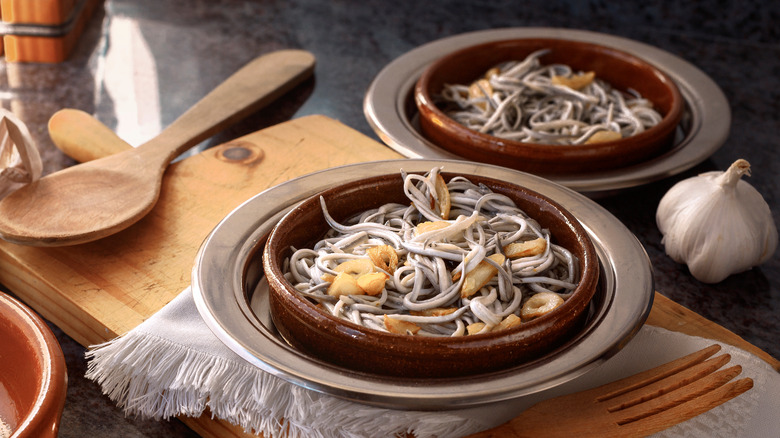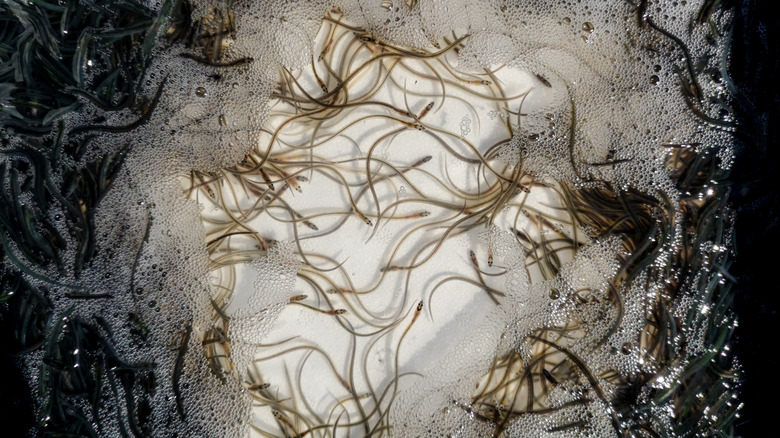Andrew Zimmern's Favorite Ways To Prepare Baby Eels
Baby eels — they're that classic food that you love, but you just don't know it yet. Many modern eaters are familiar with the adult counterpart of freshwater eel, unagi, which is widely consumed by East Asian countries like Japan and Korea. Baby freshwater eels are a less common delicacy, but according to Andrew Zimmern in an AMA video on his YouTube channel, the best way to eat them is how the Spanish have been doing it for generations. Known as angulas in Spanish, baby eels are a traditional delicacy in northern coastal cities of Spain, and although it's getting harder to enjoy them due to their scarcity, they are cooked with the respect they deserve.
Angulas, as Zimmern describes, are cooked very simply in terra cotta pots known in Spain as cazuelas with olive oil, garlic, and hot chili pepper. The result is a fantastic tapa that should be enjoyed with bread to sop up all the delicious oil and, assumedly, an alcoholic beverage of some kind to round out the tapa experience. Zimmern also elaborates on angulas being something he learned to eat in childhood, thanks to his father. He reveals that whenever he's in Europe, he considers detouring to Spain just so he can eat baby eels prepared the Spanish way. Sadly, though, what was once so prevalent in his youth, is no longer.
How to eat baby eels today
Today, Zimmern reveals that a small platter of angulas will cost diners up to $90, and that's all thanks to the state of freshwater eels in the wild. Eels, like the ones enjoyed in Spain and East Asia, are born in the ocean and live their adult lives in freshwater habitats like rivers and lakes. Eventually, they return to the place in the ocean where they were born to lay their eggs and start the next generation. But, in places where eating baby eels is common, this is obviously problematic in allowing the natural replenishment of the fish because they don't get a chance to mature and migrate back to the ocean.
Now, they have the reputation of being the "caviar of Northern Spain" thanks to their price and scarcity. And while Zimmern would recommend curious diners to try the authentic thing at least once, there is a cheaper alternative for those who might want to return to it without paying a small fortune. Similar to imitation crab, there is a Spanish product called gulas people can buy, which uses processed fish paste to imitate the flavor, texture, and appearance of baby eels. Home cooks who can get their hands on gulas, should stick to Zimmern's advice on the best way to prepare them. They won't taste exactly the same but should be a delicious tapa nonetheless.

